CW: swear words and adult themes
The Tortured Poets Department is a 16-track anthology album that, according to Taylor Swift, “Reflects events, opinions and sentiments from a fleeting and fatalistic moment in time – one that was both sensational and sorrowful at the same time. At 2 AM the same night, Swift announced a chaotic surprise of it being a double album- adding 15 more tracks.
The album was announced after a triumphant sweeping of the 2024 Grammy awards that Swift was nominated for. In her award acceptance speech for, “Best Pop Vocal Album,” She said, “I want to say thank you to the fans by telling you a secret that I’ve been keeping from you the last two years, which is that my brand new album comes out April 18. It’s called The Tortured Poets Department. Through this statement, Swift gave the fans a timeframe that this album existed in- the past. Therefore, the temporal effects are quite interesting and contrast in ways from Swift’s current status.
The title itself reflects on Swift’s status at the time (tortured) and the body of work within (poetry). The album reflects this beautifully, as the lyrics are sad, beautiful, and tragically written poetry.
Swift, herself, has described the album as many different things, but perhaps the most intriguing being, “the 5 stages of grief.” This insinuates that Swift felt as if the loss of loved ones through breakups equaled the loss of loved ones through death.
The album explores 3 main personal subjects; Joe Alwyn (a British Actor who resides in London), Matty Healy (the lead singer for the 1975), and Travis Kelce (Player for the Kansas City Chiefs). These 3 men have been the subject of her dating life, governing and acquiring headlines and speculation while doing so. The album itself is very telling of how she views these relationships retrospectively, whether it lasted many years, or a fortnight.
The content of the narrative she conveys is quite sorrowful, and really inspires critical thinking from her fans of exactly what she has gone through. However, Swift herself has stated that this chapter is closed and boarded up, and all that’s left behind is the tortured poetry.
Now it is left for the fans to hear and experience.
“And now the story isn’t mine anymore… it’s all yours.” – Taylor Swift
Track 1: Fortnight (featuring Post Malone)
Stage of Grief: Depression
Subject: Matty Healy
The album starts with a track that perfectly represents the themes that are to come through this album, both metaphorically and literally. Immediately, the track opens the song and album with the lyrics, “I was supposed to be sent away but they forgot to come and get me.” This line insinuates that she felt as if she were going crazy, from the start of the album. It is an interesting lyric to begin the album, because if you backtrack to her previous album, Midnights, you will find “Hits Different.” That song references feeling as she was about to be “taken away,” and it ended the Midnights album. Therefore, it seems as if this album will be a more melancholy version of the album that predeceased it.
The word, Fortnight, is defined as a 2-week period. When the song reaches the first chorus, we are met with the lyric, “For a fortnight there we were forever, run into you sometimes ask about the weather.” This line is a direct shoutout to one of our 3 subjects of exploration; Matty Healy. The relationship that Swift shared with Healy was notoriously short-lived. Therefore, we see the songstress is narratively poking fun at the longevity of the affair, as well as how it emotionally impacted her regardless of length, “I love you, it’s ruining my life, I touched you for only a fortnight, I touched you, but I touched you.” She seems to be sharing that although the relationship was short-lived, it had a lasting effect on her.
This song is the only one (at the time of writing this) from the album that has an accompanying Music Video, which adds another narrative layer to it. Swift said that the world of the video was what she imagined herself in during this time. The world she had created was black and white with a gothic feel. It showed images of a mental institution, prescription drugs, as well as electro-shock therapy. This imagery drives home the importance and meaning that this album brings forth- How crazy she felt for having to experience the whole thing.
On a narrative level, it is a very metaphorical piece of work. The repetition of the lyrics, “I touched you,” seem to represent the question and confusion that Swift would have repeated to herself throughout the affair. It is an opener for the album that is neither the saddest, happiest, angriest, or delusional song by any means. However, it introduces the subject matter of the album seamlessly.
Track 2: The Tortured Poets Department
Stage of Grief: Bargaining
Subject: Matty Healy
The second track of the album is the title track, “The Tortured Poets Department.” This song is jam-packed with multiple easter-eggs, all leading to the subject of track 2 being Matty Healy. The song opens with the line, “You left your typewriter at my apartment, straight from the tortured poets department,” which is a direct reference to Matty Healy’s love of typewriters, and Swift and Healy’s shared knowledge of writing lyrics/music. Another direct reference to the 1975 singer is the line, “you smoked then ate 7 bars of chocolate,” which is a reference to the 1975 song, Chocolate, which is a song notoriously famous for discussing smoking weed and addiction. This is also referenced in the line, “You’re in self-sabotage mode, throwing spikes down on the road,” as Healy’s addiction struggles are public knowledge. However, Swift reverently acknowledges this relationship she has found with him, regardless of the negatives, when she sings, “I chose this cyclone with you, and who’s gonna hold you like me?”
In this song, we are given a glimpse into Swift’s thoughts of marriage, or taking the next step in a romantic relationship, which is another theme within this album. Swift sings, “At dinner you take my ring off my middle finger and put it on the one people put wedding rings on, and that’s the closest I’ve come to my heart exploding.” This exact scene may have been with Healy, but it implies that she has wanted marriage, and was excited at the idea of someone wanting that with her. This further pushes the narrative that her ex-boyfriend of 6 years, Joe Alwyn, may have been the reason that the couple were never married or engaged.
Track 3: My Boy Only Breaks his Favorite Toys
Stage of Grief: Denial
Subject: Matty Healy
This song is a complex track that refers to her ex-boyfriend, Healy, as a boy. The metaphor itself reflects on a Juvenile version of Healy who breaks, “only,” his favorite toys. It is a complex metaphor that breaks down how Swift feels. The lyrics of this song opens with, “Oh, here we go again,” which directly transports the listeners into Swift’s thoughts in a sarcastic manner. She uses the imagery to compare Healy to, “the sickest army doll,” as if they are both toys in this scenario.
We are clued into a glimpse of sadness from Swift when she says, “rivulets descend my plastic smile,” which means that she was crying through the whole thing, still referencing herself as a toy doll. Swift identifies that the relationship is sad for her through this extended metaphor, and even admits that she is broken. However, she justifies it as saying, “But you should’ve seen him when he first got me.” This shows how the narrator (Swift) is in denial of the toxicity and believes that the joy he had with her will come back eventually.
We break into Swift’s altered mental state during the denial phase of this album through the chorus, as she repeats, “once I fix me, he’s gonna miss me,” implying that there is some obsession and codependency Swift shared with Healy. Swift starts to dive into the “why” behind the obsessive and codependent relationship she shared with Healy in the outro. She references feeling trapped in a box when she says, “I felt more when we played pretend than with all the Kens, cause he took me out of my box.” This juxtaposed with Swift’s Bejeweled, from her Midnights album, implies that she wanted to be back in the spotlight, or “taken out of her box,” that she felt during her time with Joe Alwyn. During the outro, we also learn that Swift feels as if Healy brought forth a spark in her, including that she felt with him.
This song gives us another glimpse into the future that Healy and Swift could’ve shared, but ultimately ruined, when she sings, “Saw forever so you smashed it up,” again, proving the denial she felt towards the toxicity of her relationship with him.
Track 4: Down Bad
Stage of Grief: Depression
Subject: Matty Healy
The narrative of this song compares being in a relationship with Matty Healy to being abducted by aliens- both quite strange and confusing experiences/being to encounter that the narrator (Swift) imagines/experiences. This comes through in multiple lyrics throughout, such as, “For a moment I knew cosmic love,” and “They’ll say I’m nuts if I talk about the existence of you.” This is a direct shoutout to the media storm that went on about the authenticity of Swift’s relationship with Healy, and this song builds a narrative that is seemingly calling this dynamic out for what it was- real, at least in her eyes, but only to her.
Building off the dynamic of comparing Healy to an alien, the chorus repeats, “staring at the sky, come back and pick me up,” implying that if Healy were to come back, she would want him to be with her again. The chorus reflects the realistic implications of her failed relationship with him, as well, when she is, “down bad, crying at the gym.”
This song would be classified as a depression song, on the scale of grief, but we are clued into the fact that our narrator felt angry towards this subject, singing, “everything comes out teenage petulance, fuck if I can’t have him.” This song also has an interesting dramatic effect during the bridge of the song when she describes genuinely loving those alien-esque encounters, “I loved your hostile takeovers, encounters closer and closer, all your indecent exposures, how dare you say that it’s-”
There is use of dramatization within this song- both with Swift comparing her experience to being with Healy as similar to encountering undiscovered life, but also stating that she, “Might just die, it would make no difference.”
At this point in the album, it becomes apparent that many of the songs surround Healy, who was presumably a fling. Although the pair had history dating back to 2014, during the original 1989 era, four songs in with no mention of her 6-year relationship ending had fans speculating how deep this relationship actually was, and what happened outside of the media storm.
This song is a perfect segmentation for our next song.
Track 5: So Long, London
Stage of Grief: Acceptance
Subject: Joe Alwyn
Historically, track 5 songs are considered the “saddest” song on each given Taylor Swift album. To many, this album is no exception, however, the stark contrast between this song being classified as an acceptance song by Swift, but still having some of the saddest lyrics, is an interesting concept.
Swift refers to our next subject of exploration; Joe Alwyn, under the pseudonym, “London,” which is correlated to where he resides. She is indirectly speaking to ‘London’ when she sings, “So long, London.” Swift reflects on her relationship with him and all of the feelings she experiences- anger, pain, guilt, grief, and more, through different lines scattered throughout. This is a fitting response to an acceptance song, as it is the last stage of grief before you identify the situation for what it is/was, and move on from it.
The telling parts of this song come through most in the bridge. The first line of the bridge says, “And you say I abandoned the ship, but I was going down with it,” which points to conversations Swift and Alwyn had about their disconnect. This line points to how Alwyn felt, as a character within her narrative, as he feels as if she was not trying. This juxtaposes her previous song from Folklore, Exile, when she sings, “you never gave a warning sign (I gave so many signs).”
The next lyrics, “And my friends say it isn’t right to be scared every day of a love affair, every breath feels like rarest air when you’re not sure if he wants to be there.” It has been widely speculated by fans that the day that Swift exposed the truths of her relationship with Alwyn made them dislike him. Therefore, this line refers to the occurrence of Taylor Swift’s family and friends unfollowing Alwyn on instagram simultaneously on April 20, 2023. The album was released a day before this information went public, a day shy of the 1 year anniversary of that event, which could be coincidental, or not.
The final verse of the song can be viewed as “the climax” of this narrative, when Swift drops blatant details of how her relationship ended with Alwyn, singing, “you swore that you loved me but where were the clues? I died on the altar waiting for the proof.” This recalls a previous lyric that Swift had written about Healy, and offers an explanation as to why she was excited at the mere concept of a man wanting to marry her. She indicates that her relationship with Alwyn died the longer and further he went without committing to her. Again, this is a sharp contrast with a previous song off of her 2019, Lover album, Paper Rings. She referenced that she loved Alwyn so much that she would marry him with paper rings- symbolizing her lasting love for him, when she sings, “I like shiny things, but i’d marry you with paper rings, uh-huh, that’s right, darling you’re the one I want.” The realization that marriage would not occur for the couple angered Swift, which she admits as she sings, “I’m just mad as hell cause I loved this place for so long, London.”
Track 6: But Daddy I Love Him
Stage of Grief: Denial
Subject: Matty Healy
This song has been widely speculated to be about Taylor Swift’s new boyfriend, Travis Kelce, as this song feels unfitting for such a dreary album. However, Swift herself classified the song as a denial song, and therefore, is our 5th song on the album we see with the subject of Matty Healy. This song is a more adult and mature version of Love Story, which Swift wrote as a teenager. Metaphorically, they are very similar, as they use fairy-tale imagery to showcase forbidden love.
Throughout the song, Swift shares her feelings about saboteurs protesting, Sarahs and Hannahs in their Sunday best, and wine moms- all negatively implying that these groups are considered judgemental people in her eyes. The “elders” convening likely refers to her team at 13 management, as we have seen before in her “Miss Americana,” documentary. Swift describes multiple scenarios of people sharing unwanted opinions, and her and her lover trying to escape it. This likely refers to the media storm, once again, when her fans were sharing via social media how disappointed they were in her, and wanting the best for her. Swift directly mocks this when she sings, “God save the most judgemental creeps who say they want what’s best for me.”
Swift shares how she is tired of hearing what people have to say about her relationship with Healy through multiple other lines, such as, “I’d rather burn my whole life down than listen to one more second of this bitchin’ and moanin’,” and, “Let me tell you something about my good name, it’s mine alone to disgrace, I don’t cater to all these vipers dressed in empaths clothing.” She insinuates that her fans were even upsetting her during this period, as some of them were forming parasocial relationships towards her and her personal life. She mentions this when she says, “sanctimoniously performing soliloquies I’ll never see.”
This song is very uplifting and shows that Swift felt a deep connection to Healy while being very protective of their relationship. She describes their relationship as, “chaos and revelry,” in present tense during the main portion of the song, and then switches over to past tense in the outro. The relationship has since ended and is not revisited, but Swift still views that time-frame as chaotic and joyful as well- to an extent.
Track 7: Fresh Out The Slammer
Stage of Grief: Acceptance
Subject: Matty Healy/Joe Alwyn
Track 7, Fresh Out The Slammer, offers another extended metaphor that we’ve seen in previous tracks thus far. In this narrative, Swift compares her long term relationship with Joe Alwyn as the “Slammer,” comparing her 6-year relationship with jail time. Swift opens the song with the lyrics, “Now pretty baby I’m running back home to you, fresh out the slammer I know who my first call will be to.” This line speaks volumes as to how Swift felt trapped in her previous relationship with Alwyn, and views her rebound (Healy) as someone she wants to escape to after this event. It also shares that Swift thought of Healy frequently during the length of her relationship with Healy.
When The Tortured Poets Department finally released, many fans found it odd that Swift sang more about Healy than Alwyn, and this song gives us a glimpse into why. It seems as if Swift was already moving on and accepting her breakup with Alwyn, which we are clued in via the line, “Another Summer, taking cover, rolling thunder, he don’t understand me. Splintered back in Winter, silent dinners, bitter, he was with her in his dreams.” This line, specifically, confirms that Swift and Alwyn started having thoughts of separation back in the Winter of 2022. Things were seemingly off in their relationship, as Alwyn didn’t understand Swift’s level of fame. This line also brings accusations of cheating on Joe Alwyn’s end to the table for examination. Swift feels as if Healy understands her and her life better, as he is a famous musician as well.
Swift compares her relationship with a track off of her 2012 Red album, which is infamous for having it’s main subject as heartbreak. Swift Sings, “Gray and blue and fights and tunnels,” which parallels lyrics from the song Red and the lyrics, “Loving him was blue like i’d never known, missing him was dark gray all alone.” This juxtaposes the previous reference of this song from her 2019 Lover Album, when she sings, “I once believed love would be burning red, but it’s golden, like daylight.” This lyric shares that a love she found to be beautiful and true ended up sad and lonely like the ones that came before.
Track 8: Florida!!! (featuring Florence + the Machine
Stage of Grief: Depression
Subject: Joe Alwyn
Tampa, Florida was Swift’s first stop of the Eras Tour after the information of Alwyn and Swift’s breakup went public. Therefore, Swift frames Florida as a way to escape her current situation and life struggles. In an interview with iHeartRadio, Swift shares that she imagines, “Florida is a place where people go to escape from crime,” and therefore, she compares Florida to a drug- or a coping mechanism, when she sings, “I need to forget so take me to Florida.”
The music has a similar charged sound chaotic in a way, which matches the energy of the lyrics, especially when Swift sings, “What a crash, what a rush, fuck me up Florida.”
Track 9: Guilty as sin?
Stage of Grief: Bargaining
Subject: Matty Healy
This track is considered a “bargaining” track, as it speaks of lust and sexual desires from Swift’s POV- while seemingly with another man. Swift bargains with her own morality and what is right or wrong. The history that Matty Healy shares with Swift went far back, and likely, Swift would think about Healy from time to time in her relationship. The narrative implies that Swift would dream about being with Healy if her relationship with Alwyn ends, singing, “my boredom’s bone-deep, this cage was once just fine. Am I allowed to cry? I dream of cracking locks.” She questions if she is allowed to feel sad over a man that she is not dating.
Swift implies multiple times throughout the album that she was “bored” in her relationship with Alwyn, and she struggles with the guilt of having sexual desires of Healy. Healy’s favorite band is The Blue Nile, public information that is likely sneakily included by Swift to share that Healy is the subject of the song. Swift confirms this when she sings, “I keep recalling things we never did, messy top lip kiss, how I long for our tryst,” and, “these fatal fantasies giving way to labored breath, takin’ all of me, we’ve already done it in my head.
Swift imagines these desires, she never acts upon them, when she sings, “without ever touchin’ his skin, how could I be guilty as sin?”
Track 10: Who’s Afraid of Little Old Me?
Stage of Grief: Anger
Subject: Music Industry
Every now and then, although not often, Swift writes and releases a fired up and enraged ballad that showcases her feelings of anger towards a given situation. This song is no different, and piggybacks off of songs with similar messages, dating back to the Speak Now Era. Tracks with similar meanings throughout her discography include (but are not limited to), “Mean,” “The Lucky One,” “Blank Space,” and more that display different aspects of stardom that she dislikes. The narrative displays the negative feelings Swift has towards the music industry, and the media for how they portray her personal and professional life.
When the song begins, the tone of the music is chilling and suspenseful. Swift has a way of writing music that you may need a dictionary or thesaurus to fully comprehend, and the opening of this song is like that. However, context clues in words such as, “attack,” rings alarm bells for the listeners. Swift immediately hops into the “why” of this track in the opening verse when she sings, “But my bare hands paved their paths, you don’t get to tell me about sad.” This lyric is a direct call upon recent scandals with newer artists that Swift has been involved in or accused of, although nothing actually happened with or came from the scenario.
Shortly after Swift and Alwyn split up, there were accusations that Olivia Rodrigo was being sued by Taylor Swift for not crediting her in a song. Ultimately, the allegations were false. However, fans still speculated that Rodrigo’s song, “Vampire,” was about Swift. Although those are just rumors, it would provide insight for Swift’s line, “The scandal was contained, the bullet had just grazed, at all costs keep your good name, you don’t get to tell me you feel bad.” Fans have also speculated that the lyrics, “that i’ll sue you if you step on my lawn, that i’m fearful, and i’m wretched, and i’m wrong,” relate to this as well, as many people speculated that Swift sued Rodrigo for her song, Deja Vu, sounding similar to Swift’s, Cruel Summer.
The bridge highlights multiple aspects of Swift’s life that seem to agitate her when they are in the media. One aspect Swift has spoken about before is feeling like she, “can’t win.” Therefore, when she sings, “Put narcotics into all of my songs, and that’s why you’re still singing along,” she is poking fun at the media running with accusing her of witchcraft. Obviously, there is no foundational reason to have this belief, and she sarcastically comments on it in the song.
The title has a large emphasis on Swift’s feelings in society, “who’s afraid of little old me?” She feels as if she is a good person, as do many, and she finds the hate and criticism unreasonable and unnecessary.
Track 11: I Can Fix Him (No Really I Can)
Stage of Grief: Denial
Subject: Matty Healy
The title of this track alone begins to narrate Swift’s feelings towards the subject of this track. Swift directly points out a man that she is interested in, although he needs some fixing. Swift directly calls out her ex-boyfriend’s bad traits, assuring people that she is going to be able to change his actions. There are multiple direct references to Healy throughout the song, starting with the opening verse. Swift sings, “the smoke cloud billows out his mouth like a freight train through a small town,” immediately pointing out Healy’s habit of smoking, even while he performs. Healy is known to say very nasty things and make disgusting jokes, so therefore her next like, “the jokes that he told across the bar were revolting and far too loud,” is another direct reference to him.
Swift sings about wanting to fix Healy when she says, “I can fix him, no really I can.” The chorus repeats 3 times in the song. The first 2 times are present tense, and the final chorus is past tense, and she says, “oh, maybe I can’t.”
Track 12: loml
Stage of Grief: Depression
Subject: Joe Alwyn
Track 12 explores a deep depressive state that Swift is feeling, after losing someone that she thought was the love of her life. Culturally, “loml” is a commonly known abbreviation for, “love of my life.” In the song, Swift recalls her ex-boyfriend, singing, “you said I’m the love of your life.” Swift never references the subject as the, “love of my life,” except for in the last line when Swift turns the tables and sings, “you’re the loss of my life.” The song is a play on words, and cultural knowledge of cybertext.
Alwyn, the subject of the song, has been known to have “taken breaks” in his relationship with Swift. The narrative of the piece confirms this theory. Swift has sung about this before in the Midnights track, The Great War. However, this song reflects on how she feels a sense of defeat when she sings, “who’s gonna stop us from waltzing to rekindled flames,” and, “should’ve let it stay buried.” Swift expresses resentment to Alwyn when she sings, “Oh what a valiant roar, what a bland goodbye, the coward claimed he was a lion.” She seemingly insults Alwyn for running away from the relationship, and doing so in an unpleasant manner. The somber tone of the music sonically implies the sadness that Swift is feeling towards the way that this relationship ended.
Track 13: I Can Do It With A Broken Heart
Stage of Grief: Denial
Subject: Joe Alwyn/Music Industry
In, I Can Do It With A Broken Heart, Swift shares the struggles she faces while touring post-breakup. This song is a highly eye-opening track for the fans, as Swift opens the track with, “I can read your mind, “she’s having the time of her life.”Immediately, this draws both the casual listener and her fanbase in, alike, when Swift describes her Lover Bodysuit (The most culturally known symbol of the Eras Tour), singing, “there in her glittering prime, the light refracts sequin stars off her silhouette every night”- the most widely known symbol of the Eras Tour, and follows it up with, “I can show you lies.” The time-line is coherent with her split from Alwyn, as her tour started March of 2023, the breakup going public the following month.
In the chorus, Swift shares that she was faking her joy and excitement the whole time, because she is a professional, singing, “I’m a real tough kid, I can handle my shit, they said, “babe you gotta fake it til you make it,” and I did.” She immediately counteracts this statement in lines saying she broke down and hit the floor, and she wants to die. The song has an upbeat pop feel to it, with some deeply painful and gut wrenching lyrics, challenging conventional stereotypes of pop music.
Swift recalls the crowd chanting, “more!” as she is breaking down. There were videos filmed of Swift smiling through tears while singing Lover (a song she wrote about Alwyn), Champagne Problems (a song she co-wrote with Alwyn) and I Don’t Want To Live Forever (a song she likely connected to at the time.) While there were certainly signs that she was sad, she didn’t comment on them, or even acknowledge them. Swift shares in the outro that she has a sense of pride for being able to hide her misery on stage, saying, “Cause i’m miserable, and no one even knows!” There is a giggle sound that plays over the outro, adding a chilling effect.
Track 14: The Smallest Man Who Ever Lived
Stage of Grief: Anger
Subject: Matty Healy
On a similar note as the song, “Who’s Afraid of Little Old Me?” Swift reflects on her vengeful feelings towards a singular person’s actions, Matty Healy. Swift angrily responds to disappointment in her ex-boyfriend for multiple reasons, including ruining her, “sparkling summer,” and causing her to risk her reputation for him.
At first glance, the song seems to be about Alwyn, but Swift directly points out multiple characteristics that are culturally known to be characteristics of Healy. These indicators include the line, “In your Jehovahs Witness suit, who the fuck was that guy?” This line alludes to the suits that Healy is known for wearing on stage, and also the public’s narrative of Healy and Swift’s relationship, which is in relation to the latter half of the line. Swift directly mocks his drug addiction as well, in the line, “You tried to buy some pills from a friend of friends of mine, they just ghosted you, now you know what it feels like.”
Swift acknowledges the short-lived romance with the line, “Once your queen had come, you treat her like an also-ran,” signifying that he was over the act of pursuing her as soon as she was available and interested. This likely led to the anger that engulfs the main chorus of the song, when she asks her ex-lover, “can someone give a message to the smallest man who ever lived?”
Track 15: The Alchemy
Stage of Grief: Acceptance
Subject: Travis Kelce
Th Alchemy is a track that has a different “vibe” to it then the others- it is more hopeful, both sonically and lyrically. We see our third main subject of exploration of the album, Travis Kelce, come into the scene via this narrative. Travis Kelce, Swift’s current boyfriend, has taken the media by storm, both on the way he speaks of Swift, and acts with her (as seen in paparazzi photos). It was a common idea that Alwyn and Healy hid her from the spotlight in hopes of a more “normal” life, but Kelce understands having a vastly public life in his respective career. Kelce, the starting tight-end for the Kansas City Chiefs, pursued Swift with noble acts of chivalry and public affection. This is likely the reason Swift refers to their relationship as, “The Alchemy.” The Alchemy, via the Oxford dictionary, is described as a, “seemingly magical process of transformation, creation, or combination,” therefore, making their love story something Swift may consider The Alchemy.
The song is littered with football references about her confidence in her relationship with Kelce, singing, “So when I touch down, call the amateurs and cut em’ from the team.” This line, along with its fellow football references, show that Swift feels as if she belongs with Kelce, and she’s, “the one to beat.”
In the narrative of the song, she mainly focuses on her flirtation with Kelce, but acknowledges that emotions she had leading up to finding and meeting him. This is showcased in the line, “What if I told you I’m back? The hospital was a drag, worst sleep that I ever had, I circled you on a map.” Swift directly references her own mental state post-Alwyn and Healy as the hospital in this line, and admits that he piqued her interest from afar.
Track 16: Clara Bow
Stage of Grief: Depression
Subject: Music Industry
This track closes the first part of the double album, exploring themes that have to do with the greater majority of Swift’s life, being a part of the music industry, versus her recent ex-boyfriends as subjects. The song openly compares starlets that will come after her (and previous starlets) to people that predeceased her and future generations in a negative connotation. Swift opens the song referencing Clara Bow, a silent film star from the 1920’s, as she sings, “all your life did you know you’d be picked like a rose?” This line introduces the theme of the song that Swift tackles- there will always be someone new and ‘better’ to compete with, all while struggling with mental health battles from the weight of it. Swift then sings that she “might die if it happened,” pushing the narrative that she deeply craved stardom at one point in her life, and didn’t understand that she would receive intense backlash from it. The next chorus references the 1970’s queen, Stevie Nicks, and how, “The crowd goes wild at her fingertips.” Swift follows this up with another pre-chorus, singing she, “might die if she made it,” similar to how Stevie Nicks did.
Throughout the chorus, she echoes voices and ideas she may have heard during her entry into the music industry, singing, “this town is fake but you’re the real thing,” and, “promise to be dazzling.” At the end of the song, Swift turns the narrative around on herself and the negative things people may say about her in the future. Swift sings, “You look like Taylor Swift in this light, we’re loving it. You’ve got edge she never did, the future’s bright, dazzling.” This self deprecating lyric reflects on how she feels she is valued in the music industry.
Track 17: The Black Dog
Stage of Grief: Anger
Subject: Joe Alwyn
The narrative of this song displays a pathos-driven reaction that the narrator (Swift) is recalling through her relationship ending. The title itself, The Black Dog, is a direct callout to a bar in London that shares the same name. Swift references the bar in a previous reputation track, Delicate, when she sings, “Dive bar on the East Side, where you at?” This song is widely speculated to be about Alwyn and Swift’s first meeting. Therefore, this song juxtaposes the narrative of that song by creating a sorrowful and longing meaning of Swift missing those days. Swift references this when she sings, “I just don’t understand how you don’t miss me, in The Black Dog,” sharing her anger towards feeling used and discarded by Alwyn.
Swift also shares her anger towards Alwyn’s new girlfriend when she sings, “When someone plays “The Starting Line” and you jump up, but she’s too young to know this song.” She also recalls lyrics from previous track, loml, when she insinuates that her ex-boyfriend is a coward by saying, “You said I needed a brave man, then proceeded to play him, until I believed it too, and it kills me.”
The most telling clue of the subject of this song song is the line, “now I want to sell my house,” contrasting her previous song, Cornelia Street, where she writes about never wanting to walk in the house her and Alwyn shared again if she were to lose him.
Track 18: imgonnagetyouback
Stage of Grief: Denial
Subject: Matty Healy
The narrative that Swift creates in this piece is a true denial track, diving into the delusion she experienced, swearing that she will get someone back that has left her. The song title spells out, “I’m gonna get you back,” smushed together, most likely similar to her thoughts at the time. Swift explores the theme of confusion in whether she wants to get her ex back, or pursue revenge on him. Healy is known for riding a motorcycle from time to time, confirming the subject of the track when she sings, “Whether i’m gonna be your wife, or i’m gonna smash up your bike, I haven’t decided yet, but i’m gonna get you back.” This life also displays the confusion within Swift’s mindset at the time.
Swift insinuates that she knows that Healy still wants her, denying the relationship is over on his own terms. “And i’ll tell you one thing honey, I can tell when somebody still wants me, come clean,” is a line that Swift wrote when she was adjusting into a more delusional mindset of her attachment to the 1975 singer. Swift advises Healy to, “pick your poison babe, I’m poison either way.”
Track 19: The Albatross
Stage of Grief: Bargaining
Subject: Joe Alwyn
An Albatross is a large bird that has an unconventional lifestyle of spending most of its life in the water- although birds are typically land animals. Swift seems to be expressing her anxiety of being with another person, as she is somewhat of The Albatross in her respective unconventional lifestyle. The song seems to reference that people tried to warn Alwyn of Swift- telling her to stay away. She shares that other people told Alwyn to stay away from her, saying, “you’re in terrible danger.”
Although this song has an extended metaphor, it doesn’t add much insight into the time-line of Swift’s grieving process post-breakup with Alwyn. However, it does display the anxiety she felt for a long time before the breakup- possibly even for years.
Track 20: Chloe or Sam or Sophia or Marcus
Stage of Grief: Depression
Subject: Matty Healy
This song provides a deep dive into some depressive feelings that Swift was feeling towards Healy, post-breakup. The narrative Swift has written showcases the exact obstacles that they faced in their relationship, such as Healy’s drug addiction. She references this when she sings, “You needed me, but you needed drugs more, and I just watched it happen.” Swift displays her own feelings of longing for love, and also the self-resentment she feels for not being able to change him.
The song recalls multiple references from recent albums Folklore (The 1) and Midnights (Maroon). Swift sings, “So if I sell my apartment, and you have some kids with some internet starlet, will that make your memory fade from this scarlett maroon?” This line parallels the lyric from The 1, “You meet some woman on the internet and take her home,” as well as the lyric from Maroon, “The lips I used to call home, so scarlet it was maroon.” Both lyrics reference love that was had and tragically, for our narrator, lost. It adds another layer to be considered that Swift originally wrote, “The 1,” about a fictional scenario, and now is experiencing something she finds similar.
Swift expresses a want and need for Healy to acknowledge her, and wishes for him to wonder about her. This is reflected in the line, “If you want to tear my world apart, just say you’ve always wondered,” meaning that if Healy were to come back to her romantically, she would want that and probably act upon it. However, this was most likely only true at the time.
There is a line in the song that says, “as the decade would play us for fools, and you saw my bones out with somebody new, who seemed like he would have bullied you in school,” which is a very telling line of their relationship. As Stated previously, Swift and Healy have history dating back a decade, so this seemingly recalls that it was destined to fail the entire time. There is a Travis Kelce shoutout in there, as he is the “guy who would’ve bullied him in school.”
Track 21: How Did It End?
Stage of Grief: Depression
Subject: Joe Alwyn
This song is a deeply moving ballad that explores feelings of confusion as to how a relationship ended. The lyrics send a message similar to previous track, But Daddy I Love Him, which is that no one cares about the person(s) on the other side of the breakup, but rather the drama and events that led them there. Swift has been infamously chastised for dating around and having multiple public breakups, and songs she has written and produced inspired by them. Swift calls out the nosiness and curiosity of the media and public when she sings, “come one, come all, it’s happening again.” She follows this line up with, “the empathetic hunger descends,” showcasing that people will express empathy, but are secretly hungry for knowledge and insights into the relationships. Swift counters this herself, sharing that she, herself, does not know how the relationship ended, singing, “How did it end?”
The interesting part of the narrative of this piece is that Swift directly displays what she is willing to outwardly share of her relationship ending in the first verse, comparing their opposite lifestyles. The rest of the narrative is her grappling with the way that she will handle conversating about the breakup in the media. Sonically, the song plays like a tragic piano ballad, even including a voice crack here and there. Therefore, it is an interesting choice of a narrative to put right before the happiest track of the album.
Track 22: So High School
Stage of Grief: Acceptance
Subject: Travis Kelce
This track immediately has a different feel than others on the album, and is perhaps the happiest track (especially if you consider the darker themes of the other material that surrounds it)! This song shares how Swift feels, “So High School,” in her new romance, as it makes her giddy, and she finally got the boy on the football team that she always wished for (a reference to Fearless track, Fifteen)
Swift’s relationship with Kelce is highly publicized, but to take it a step further, she makes direct references to her now-boyfriend multiple times throughout the narrative of this piece. These instances include, “you know how to ball, I know aristotle,” and, “Are you gonna marry, kiss or kill me? It’s just a game but really, I’m betting on all three for us two.” The latter line is a direct reference to when Kelce said he would kiss Swift, when given the option, in a game of Marry Kiss or Kill.
The song explores how Swift and Kelce dove in head first into their new relationship, although Swift doesn’t seem to mind, when she sings, “brand new, full throttle.” She also flirtatiously references the original shot that Kelce took to win her attention, by making her a friendship bracelet with his phone number on it for her, when she sings, “you knew what you wanted and boy, you got her.”
Eagle-eyed fans were quick to spot an easter egg in the lyric video posted to youtube, where the lyrics, “Cheeks pink in the twinklin’ lights,” secretly highlights the letters T, K & S in a soft pink- spelling out both of their initials (TS & TK). Overall, Swift shares a variety of ways that her new lover excites her and makes her feel young again. Down to the sexual innuendos, acts of service, and his personality, Swift shares her happiness that she has found with Travis Kelce.
Track 23: I Hate It Here
Stage of Grief: Bargaining
Subject: Joe Alwyn
This song doesn’t have an outwardly direct theme from the lyrics, but upon deciphering the clues, this song is one about Swift’s relationship with Joe Alwyn, and feeling like she needs to escape the physical world to find peace from it. Swift clues this in to her listeners through the line, “Like you are a poet trapped inside a finance guy.” This line reflects what society saw of Alwyn in Swift’s life, someone who had boring or mediocre dreams in comparison to her- similar to a finance guy.
Swift seems to directly reference the book, The Secret Garden, By Frances Hodgson Burnett, written in 1911. She does this in the lyric, “I hate it here so I will go to secret gardens in my mind people need a key to get to, the only one is mine. I read about it in a book when I was a precocious child.” The book itself adds another narrative layer, as the theme of it is about a girl who must bring a garden back to life to restore her happiness after experiencing deep tragedy.
Swift seems to have written this track post-breakup from Alwyn, as she says, “I’m lonely but I’m good, I’m bitter but I swear I’m fine,” as these feelings come through most prominently post-Alwyn and pre-Healy. Swift follows that line up with, “I’ll save all my romanticism for my inner life and I’ll get lost on purpose,” signaling that she is mentally checked out of the dating scene for the time being, and would rather spend time with herself and her thoughts.
The imagery plays an interesting role in the narrative of this track, as it provides a sense of hope that Swift feels, but only when she imagines it. In a way, this piece seems similar to what a person would fantasize when their personal life is in shambles.
Track 24: thanK you aIMee
Stage of Grief: Acceptance
Subject: Kim Kardashian
This track is notably the most direct jab at a subject in this album, as the title capitalizes the letters of the name of the subject (KIM). Some fans may think that this is too obvious, however, Swift directly points to the clue she left in the title in the line, “I don’t think you’ve changed much, and so I changed your name and any real defining clues.” Kim Kardashian and Taylor Swift have had a feud dating back to Swift’s Fearless Era, When Kanye West stole her moment for Video Of The Year at the VMAs in 2009. Since then, the Kardashian family and Swift have had an ongoing feud, which even became the subject of her 6th studio album, reputation. Taylor Nation, Swift’s management team, seemingly confirmed this via X when they re-shared a video of Swift during her reputation era, captioning it, “screamed ‘fucK you aIMee’ to the night sky.
This track has been coined as, “The nicest diss track ever,” by the Swifties, as Swift shares her negative feelings towards Kardashian, but in a polite and accurate manner. Swift has shown her indifference towards the situation more in recent years than before, but still acknowledges the pain it caused her. Kim Kardashian recently shared that her and Taylor have “no beef,” as they both grew up and moved on, which likely inspired Swift to write the lyrics, “maybe you’ve reframed it, and in your mind you haven’t beat my spirit black and blue.”
Kardashian’s daughter, North West, is currently popular on the TikTok platform, and has notably posted videos of herself lip-synching to Swift’s music. Therefore, Swift jabs at Kardashian through the lyric, “and one day, your kid comes home singing a song that only us two is gonna know is about you.”
The first 2 choruses, Swift expresses negative emotions towards Kardashian, saying that her own mother wished that she were dead. However, the last verse reminisces on all of her accomplishments that could not have happened without Kim for inspiration, likely referring to her reputation album, once again.
Track 25: I Look in People’s Windows
Stage of Grief: Depression
Subject: Joe Alwyn
For becoming one of Swift’s shortest tracks to date, it sure packs a pathos-filled punch. The story narrates a love that was separated by fate and lifestyles, and the aftermath of the loss. Swift references the differentiability of the lifestyles of the song’s subject and herself when she sings, “Northbound I got carried away as you boarded your train South.” Alwyn and Swift were infamous in the media for having opposite goals in life- Alwyn’s being privacy, and Swift’s being in the spotlight (with her approval, of course).
Swift shares experiences similar to Folklore track, The 1. The similarity comes through in the juxtaposition of the lyrics of The 1, singing, “I thought I saw you at the bus stop I didn’t though,” and I Look In People’s Windows, “I look in people’s windows, in case your at their table, what if your eyes looked up and met mine one more time?” Both songs share a narrative of desire and longing to be with a person that seems to be torn away from them by fate.
Swift has been known to sing about the feeling of being left out, dating back to her Debut album track, “The Outside.” However, she has never sung about feeling left out by an ex-lover to a capacity such as this.
Track 26: The Prophecy
Stage of Grief: Bargaining
Subject: Joe Alwyn
This track provides a great sense of yearning to change what Swift believes to be her fate- or The Prophecy. The narrative of this song provides emotional stakes for Swift among her fans, and shares the reality of how she desires to be loved and appreciated. The track opens with Swift reflecting on how she thought she found rare and lasting love in the line, “Thought I caught lightning in a bottle. Oh, but it’s gone again.” Further into the song, Swift shares that she, “don’t want money, just someone who wants my company,” providing a sense of sadness and dread that she thinks she will never find someone to love, and to love her in return.
Swift paints an image of herself, seemingly bargaining with a higher power to “change the prophecy,” or the fate of her life. She sings, “please, let it once be me,” and, “let it once be me,” displaying her deep desire for finding a romantic partner.
Swift references the ending of her 6-year relationship with Alwyn, briefly, when she sings, “even statues crumble if they’re made to wait,” poking at the established fact that he was making her wait for marriage, and she had lost hope.
This album is full of, “Tortured Poetry,” and therefore houses many terms, lines, and metaphors that require some critical thinking. However, this song may be the most straightforward song about lost love on the album, and possibly the most relatable. The metaphors she chooses to incorporate are easily accessible for fans to understand, such as the, “I’m just a paperweight.” This shares that her emotions are heavy, and is more to the point than other comparisons seen prior.
Track 27: Cassandra
Stage of Grief: Anger
Subject: Scooter Braun/The Music Industry
The writing of this piece uses a narrative from Greek mythology- Cassandra, the ex-lover of Apollo, was killed for, “fearing the worst.” Cassandra is known for holding the gift of prophecy, which Swift is seemingly comparing to her insight of people she has interacted with in the music industry. Swift calls out two people that she has had bad blood with for a while. The first being Kim Kardashian in thanK you aIMee, and in this track, Swift seems to be referencing Scooter Braun- the man who bought her master re-recordings under the table, inspiring the Taylor’s Version re-recordings.
Swift has a history with Scooter Braun that dates back many years. She tried to go to other artists and the public with the information of Braun’s mistreatment of artists and sneaky transactions- but to no avail. Swift bore the weight of being criticized by the public for this, but shortly thereafter, other large names in the music industry began to leave Big Machine Records as well. Some of these stars include Ariana Grande, J Balvin, and Demi Lovato. One notable client of Braun’s, Justin Bieber, was discovered by him. Bieber and Swift had a feud when the allegations begun to rise, and now, he is reportedly leaving Braun’s management as well. Swift references this when she sings, “and I regret to say, do you believe me now?”
This track is rage filled as she shares how it feels to be the first one criticized and blamed for something she felt innocent of. She feels that no one apologized for mistreating her when she sings, “in the street there’s a raging riot, when it’s “burn the bitch” they’re shrieking, when the truth comes out it’s quiet.”
Swift has sung of the situation on the Evermore bonus track, It’s Time To Go. The evermore track viewed the situation from a depression/sadness standpoint, whereas this one is vengeful and angry.
Track 28: Peter
Stage of Grief: Denial
Subject: Matty Healy
Peter is a song about the narrator longing for a relationship that never came to be. The song includes a great deal of repetition of the lyric, “you said you were gonna grow up, then you were gonna come find me,” which points towards the headspace that Healy may have had when Swift and him first met years ago, at the height of his drug addiction. A possible reason for Swift to reference Healy as “Peter,” may be for the fictional character of Peter and his story- which she has previously referenced on her Folklore track, Cardigan. Previously, Swift wrote, “I knew you tried to change the ending, Peter losing Wendy,” which seems to be a prequel to this song.
Famously, Peter Pan is a character known for never growing up. Therefore, Swift is calling out Healy’s immature ways and breaking promises to her along the way. Swift indicates these feelings when she sings, “promises oceans deep, but never to keep.”
Swift classifies this song as a “denial” track. In the beginning of the song, she apologizes to the subject, singing, “forgive me peter, my lost fearless leader,” and, “is it something I did?” These lines insinuate that there was a time when Swift felt as if Healy leaving her was her fault, even sharing that she thinks that “we both did the best we could,” meaning they worked as hard as they could to have a relationship before calling it quits. The song explores Swift’s feelings of self-loathing for not being able to make their relationship work out in the end.
Track 29: The Bolter
Stage of Grief: Denial
Subject: Joe Alwyn/Matty Healy
This track showcases emotion that the narrator felt when she was “leaving” a relationship to a life or death experience. The narrative opens with the narrator sharing that she almost drowned in freezing water when she was 6, when Swift sings, “by all accounts, she almost drowned when she was 6 in freezing water.” In the chorus, Swift compares the end of a relationship to being able to breathe again- similar to how the narrator felt when she survived almost drowning in water.
The chorus shares the complexity of Swift’s relation to one of her 2 main heartbreak subjects, though which subject it is is not confirmed through detail or easter-eggs. However, it does share the aggression she experienced in this period with one of them, when she sings, “ended with the slam of a door, then he’ll call her a whore, wish he wouldn’t be sore.” Swift sings about her life that flashed before her eyes in that moment, but still came out alive. The woman that Swift depicts has been with many men in her life, but she counters this by saying, “hearts are hers for the breaking, there’s escape in escaping.”
Track 30: Robin
Stage of Grief: Denial
Subject: Childhood Innocence
“Robin” is the least streamed track of the album, as some fans think that it doesn’t fit with the “heartbreak” theme of the entirety of the album. However, like songs she wrote about the media and other topics, this song tackles the theme of heartbreak from the angle of losing your childhood innocence. Tying in with the album’s theme, Swift most likely included this to allude to her childhood being easier than her adulthood. While Swift never mentions the actual name of the song within the lyrics, fans speculate it is written for Aaron Desner’s child, who is named Robin. Desner is a co-producer and friend of Swift, as he has worked on Folklore, Evermore, Midnights, and now TTPD with her. Fan’s are describing the song as a more mature version of the Speak Now track, “Never Grow Up.”
The song has lyrics that hint to childhood innocence, such as, “Buried deep down and out of your reach, the secret we all vowed to keep it from you in sweetness.” This lyric likely references the secret of how adulthood is considered extremely difficult, especially from the view of a world-famous pop star.
Aaron Desner helped produce this track, but he also co-wrote it and performed instrumentals on the track. It is widely speculated that Swift and Desner shared their mutual feelings towards children, but especially Robin, while writing the track. From an outside perspective, this song seems as if Swift is wishing for the child to stay young to protect their innocence.
Track 31: The Manuscript
Stage of Grief: Acceptance
Subject: Joe Alwyn
The closing track, The Manuscript, is a deeply powerful song, insinuating that our narrator finally found closure from the trauma depicted in this album. Re-reading “The Manuscript,” is something Swift is referring to as revisiting the negative emotions of her heartbreak from time to time, which Swift insinuates when she sings, “Now and then she re-reads the manuscript of the entire torrid affair.” The narrative of the closing track directly pinpoints specific instances that led her to feeling the way she did, and by doing so, receives closure in return.
In verse one, Swift recalls details from her first conversation with Alwyn, saying that he implied a future with her, “but soon it was over.” She speaks of wishing to grow older so that she could have the future they talked about, but ultimately did not happen, when she sings, “in the age of him, she wished she was thirty.” She references the desire for this and how she sorrowfully watched years pass, as well, when she sings, “and the years passed like scenes of a show.”
Swift references the depth of her despair when she admits her submission to childhood innocence in the wake of the grief when she sings, “afterwards she only ate kids cereal, and couldn’t sleep unless it was in her mother’s bed.” Ultimately, Swift shares that, “looking backwards might be the only way forwards,” meaning that she is finally ready to close this chapter.
Swift sings that all that’s left of her time with Alwyn is “The Manuscript, one last souvenir from my trip to your shores.” The last line of the album closes it beautifully, saying that “now and then I reread the manuscript, but the story isn’t mine anymore.” This line correlates to finally accepting the grief for what it is and moving on from it. When Swift posted to Instagram promoting the album’s release, she confirmed her true acceptance of the subject. She wrote, “This writer is of the firm belief that our tears become holy in the form of ink on a page. Once we have spoken our saddest story, we can be free of it…
And all that’s left is the tortured poetry.”
Sincerely,
The Chairman of The Tortured Poets Lyrical Analyzation,
Lizzie Schmidt
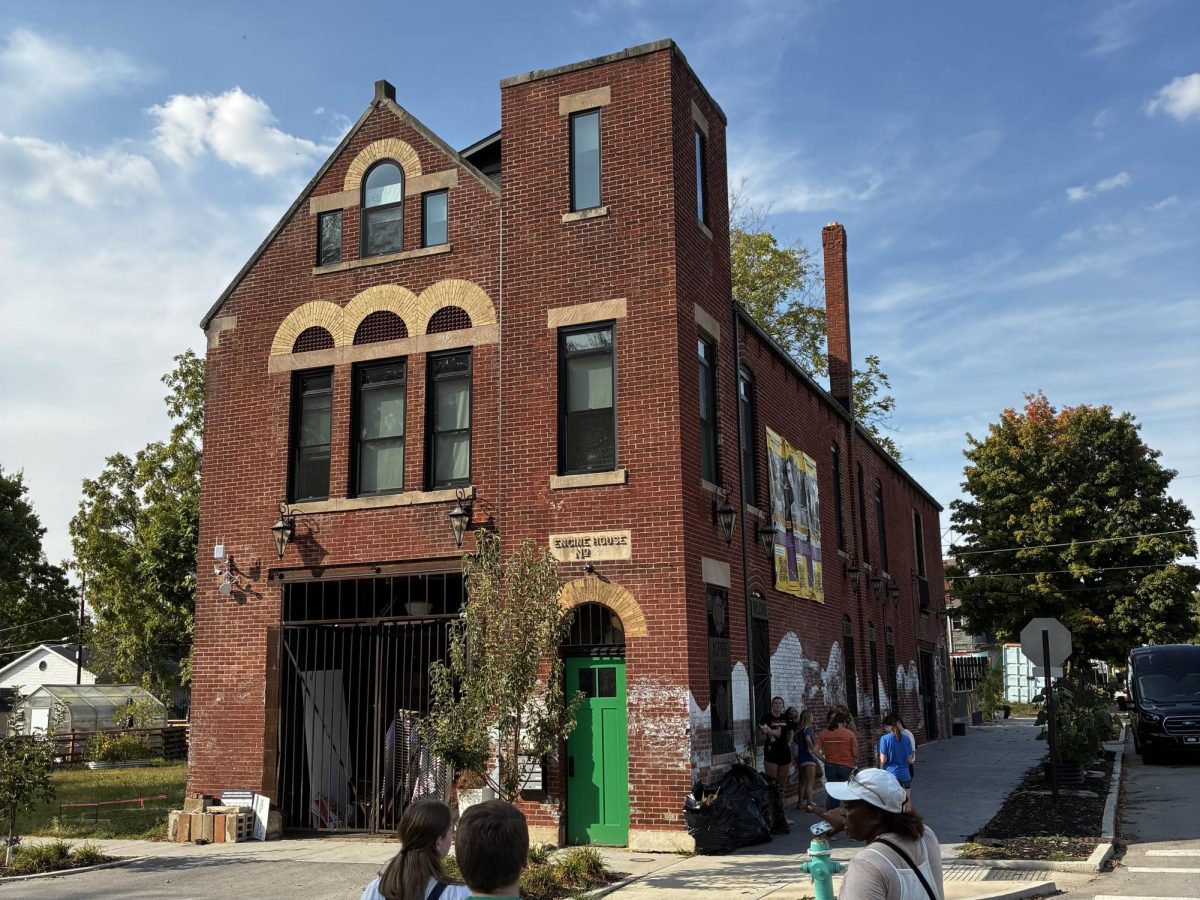
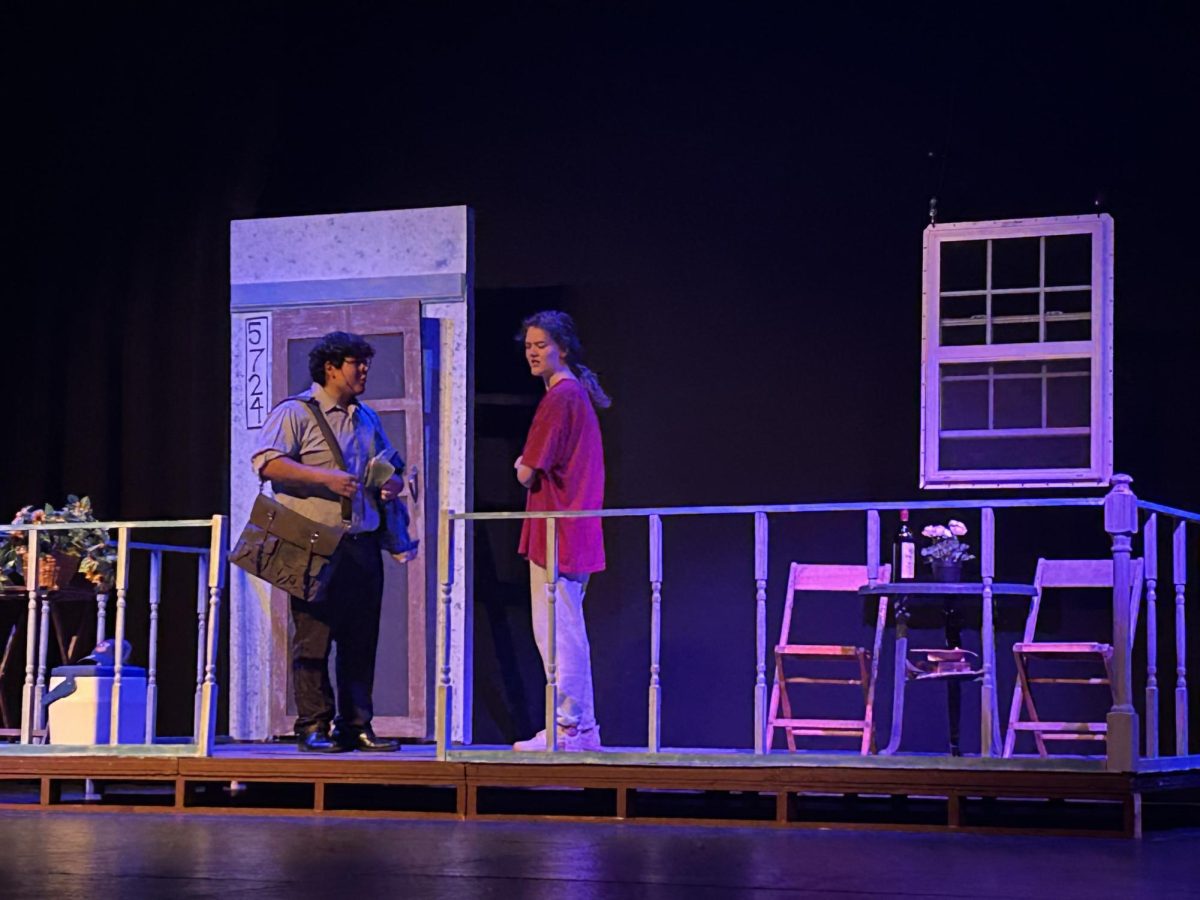

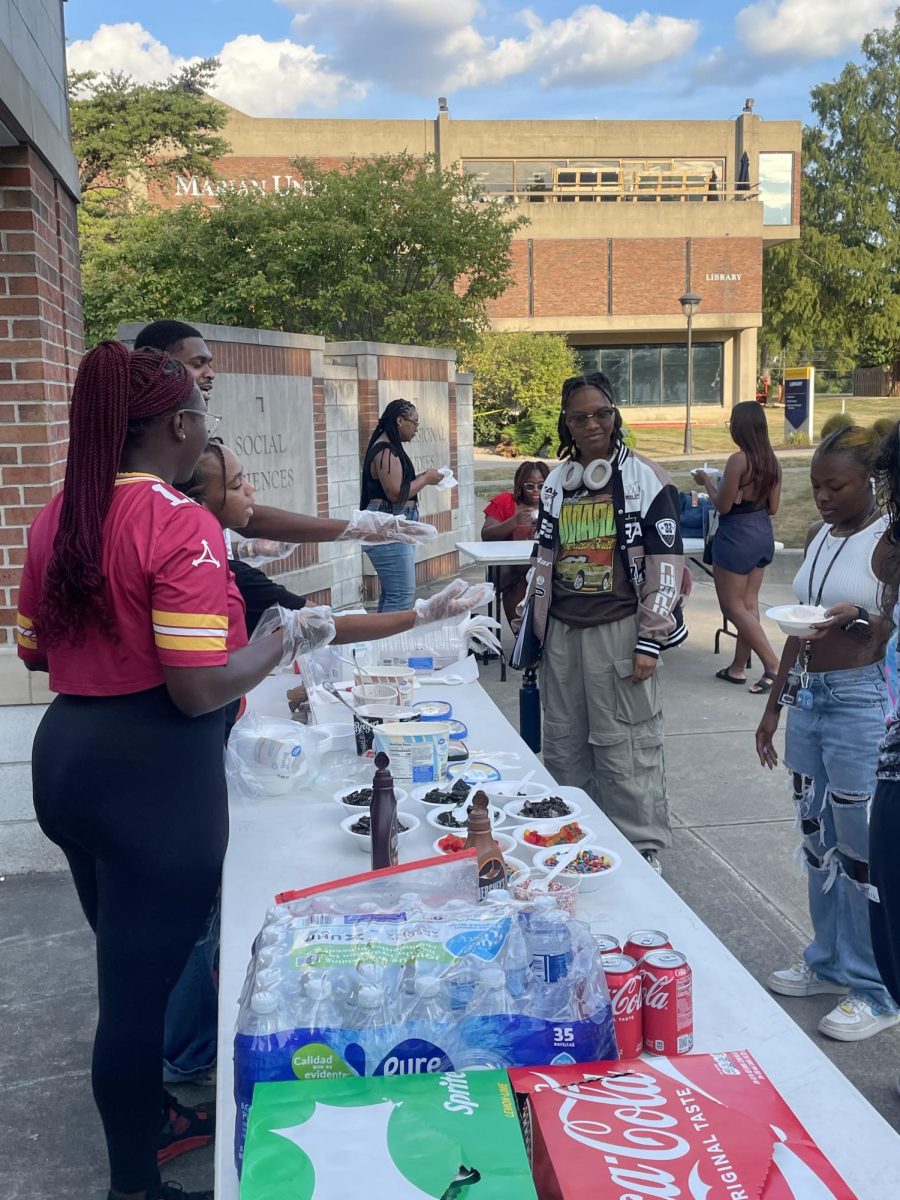
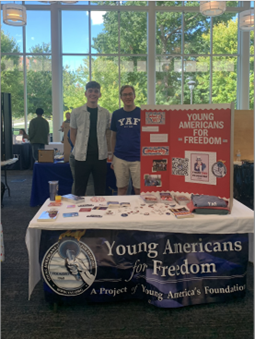

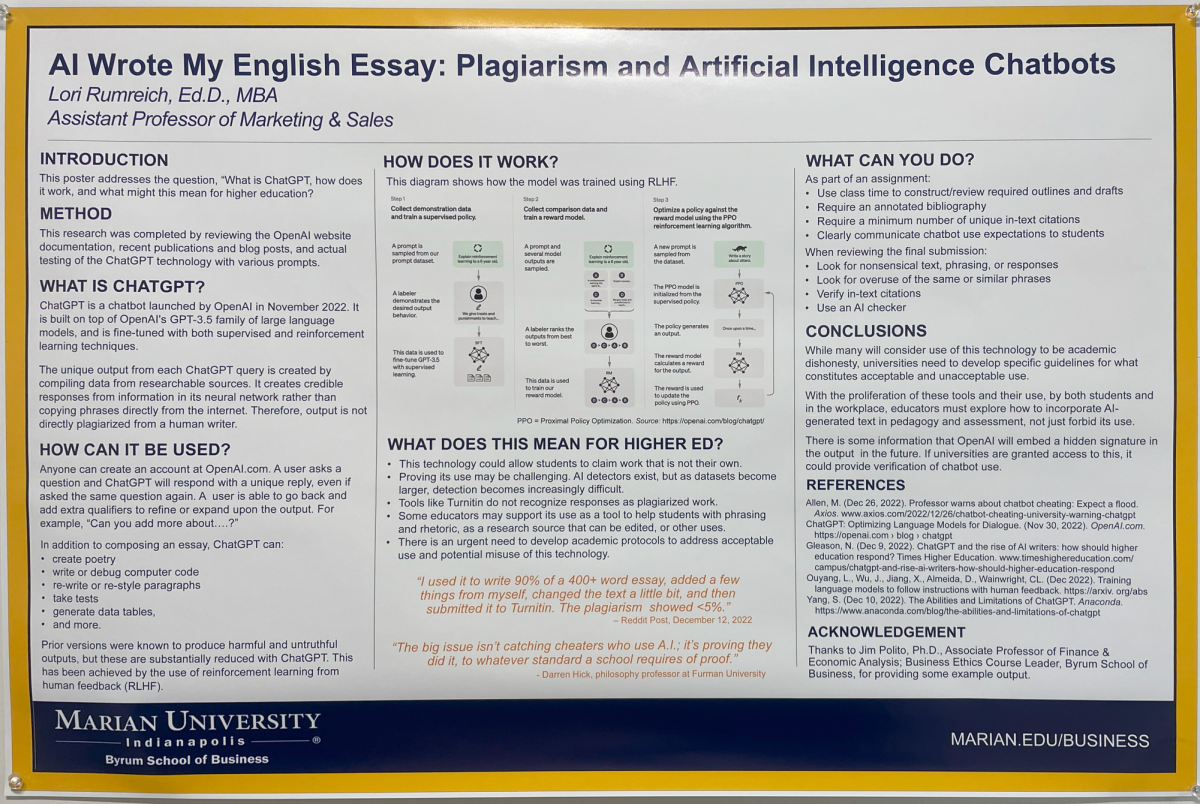
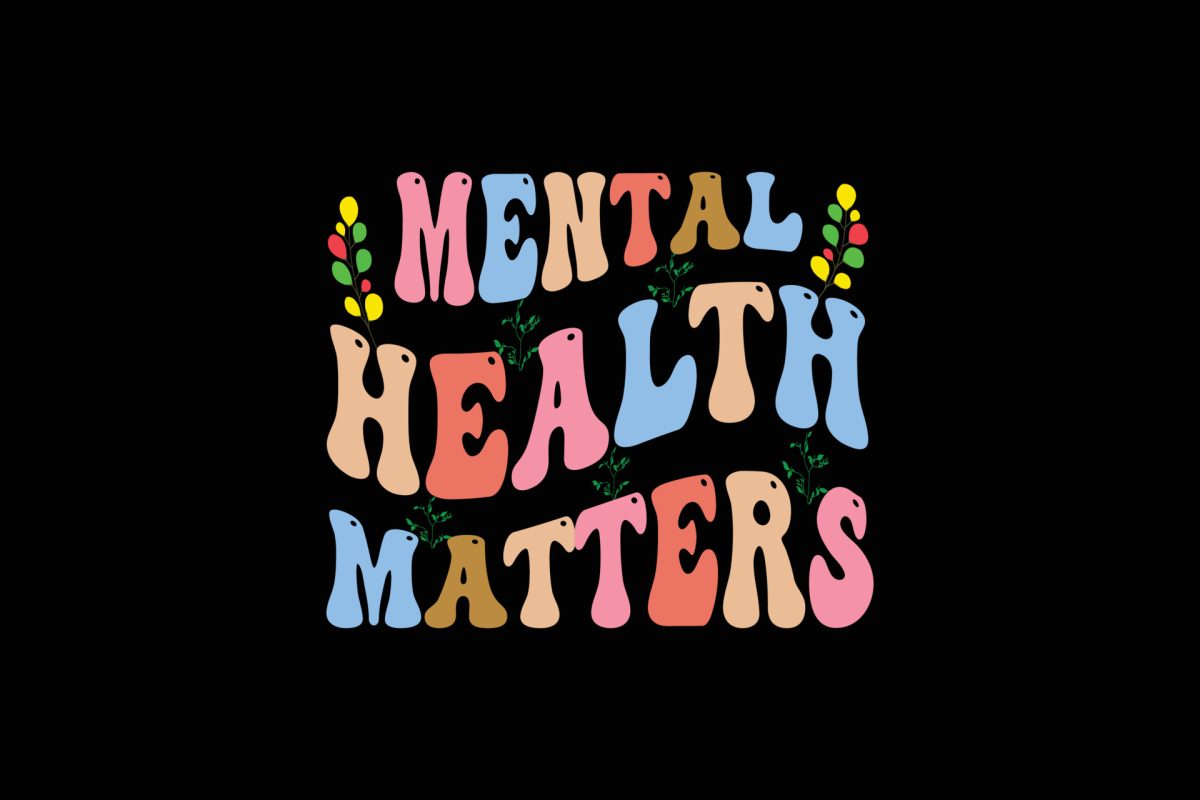

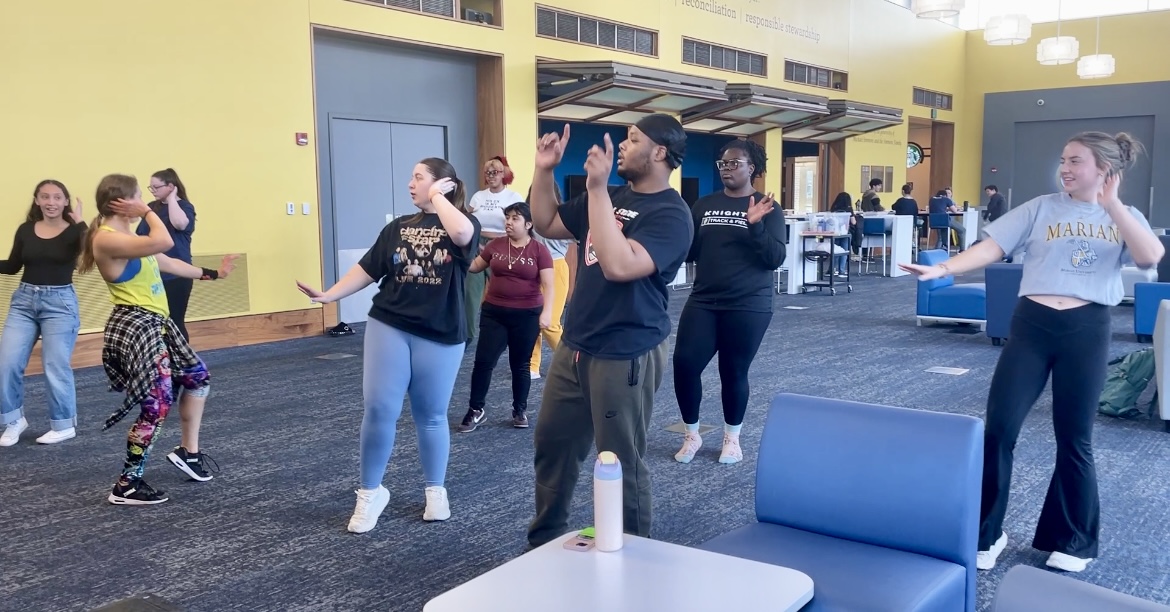
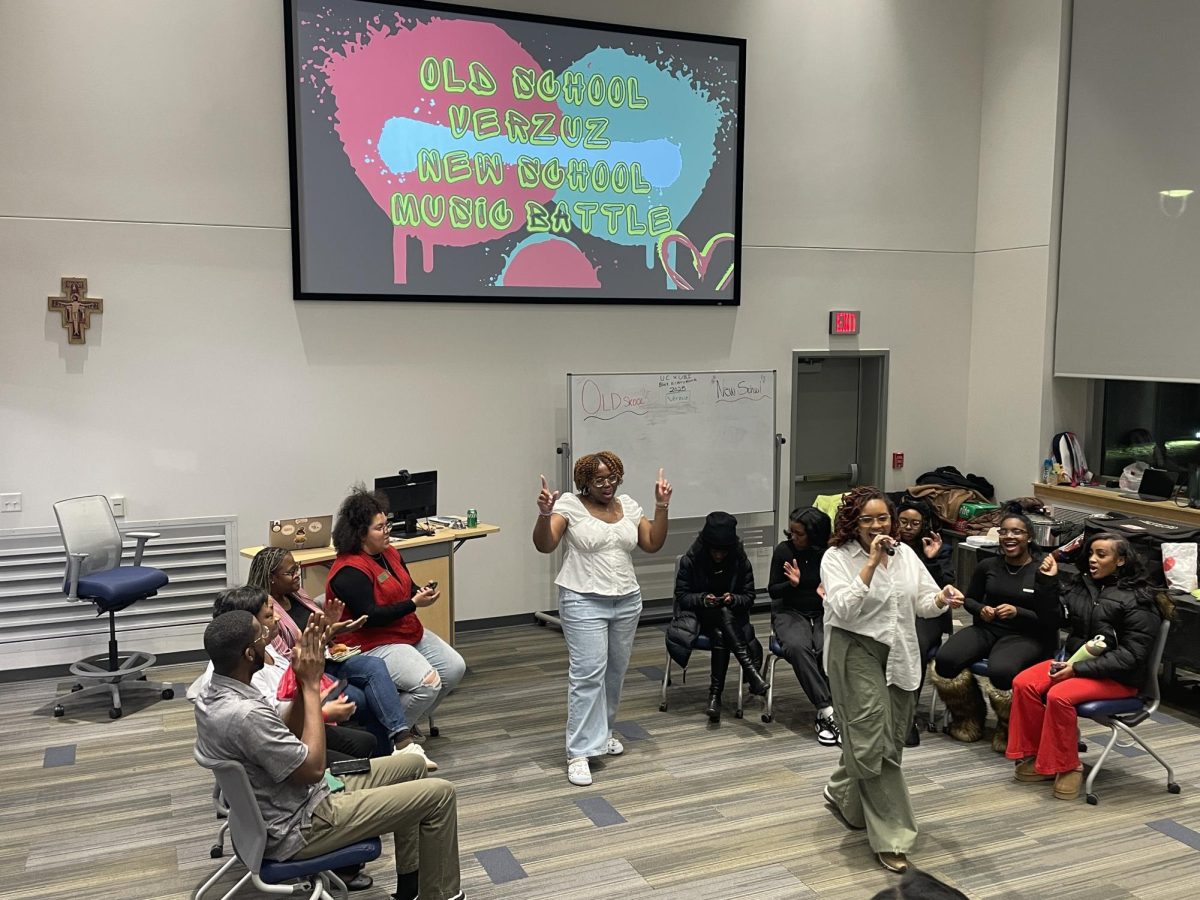
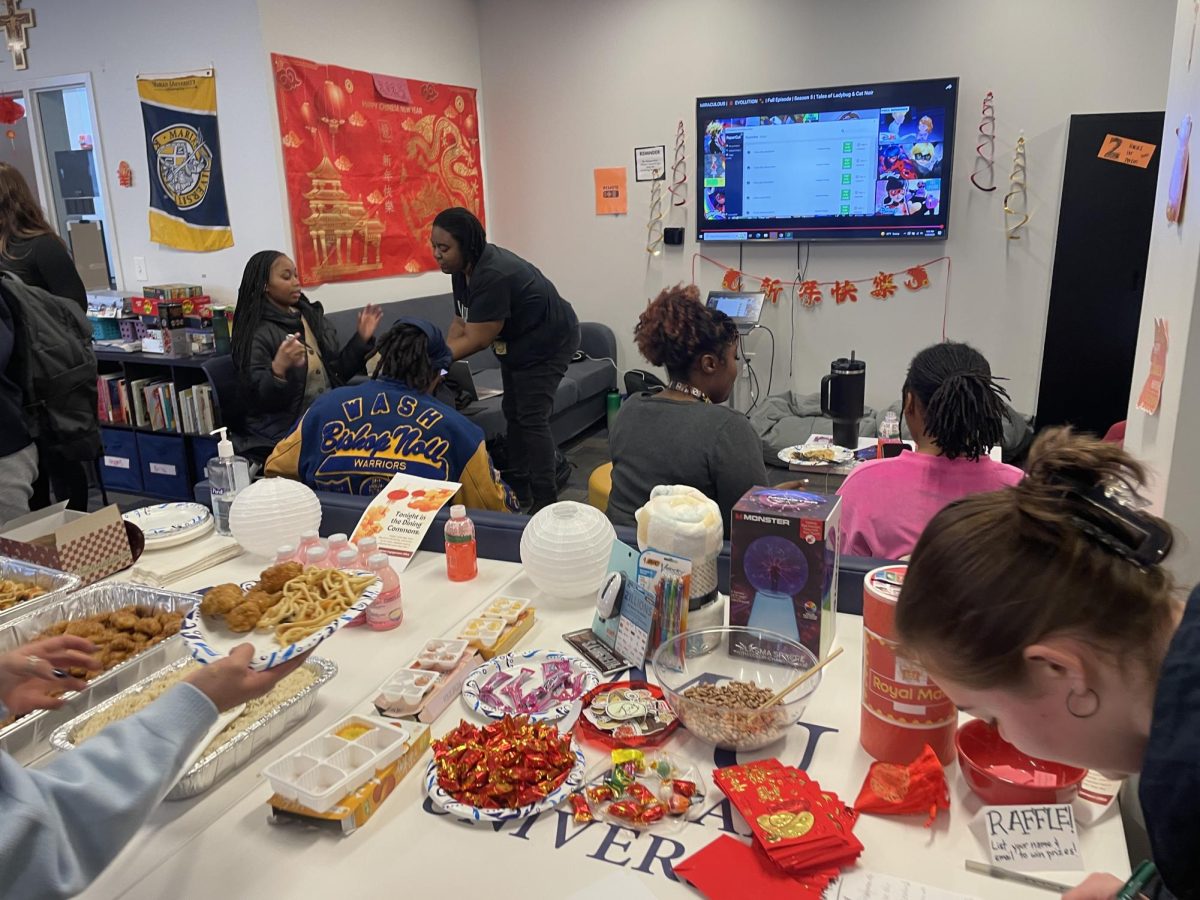
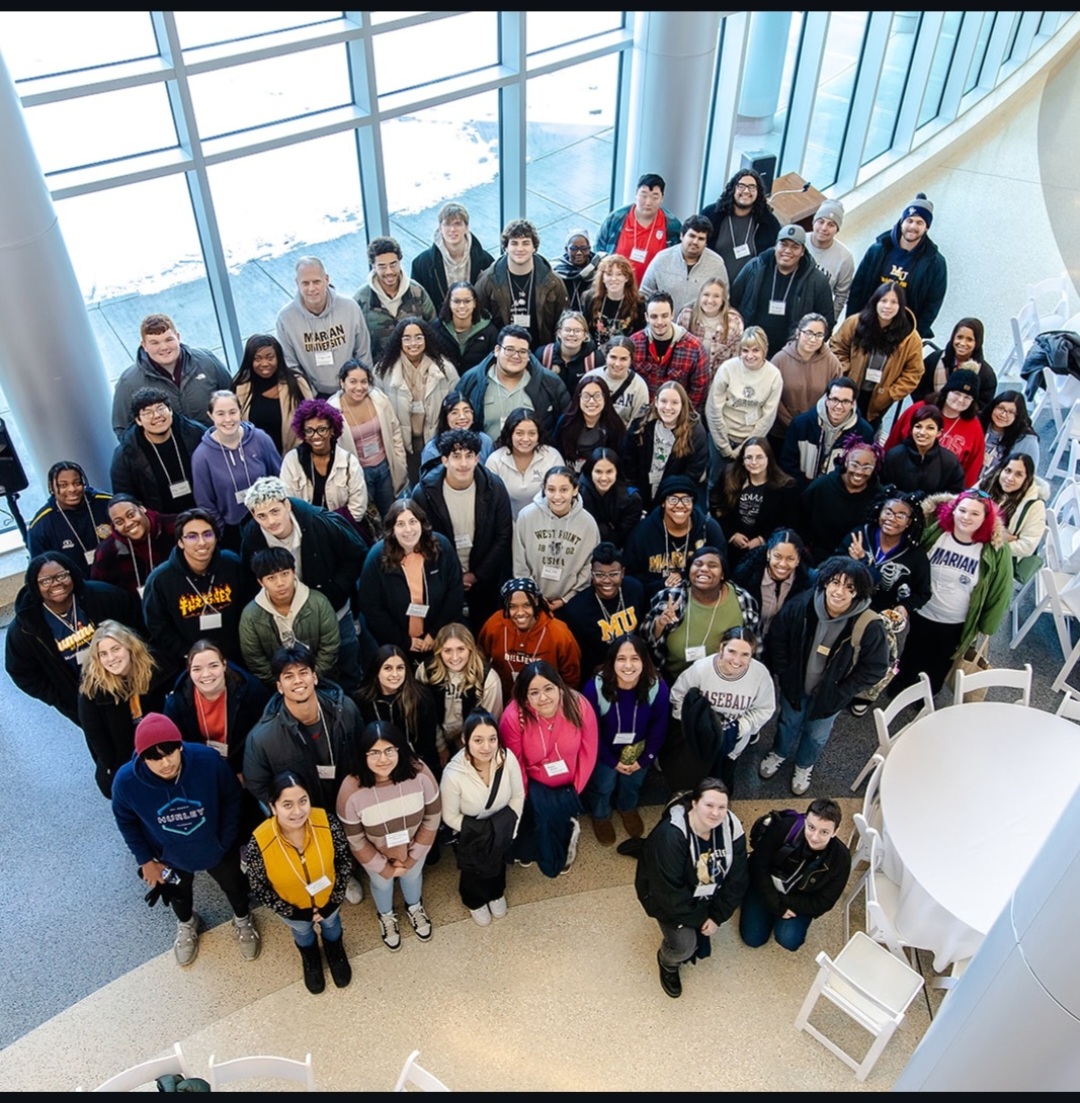
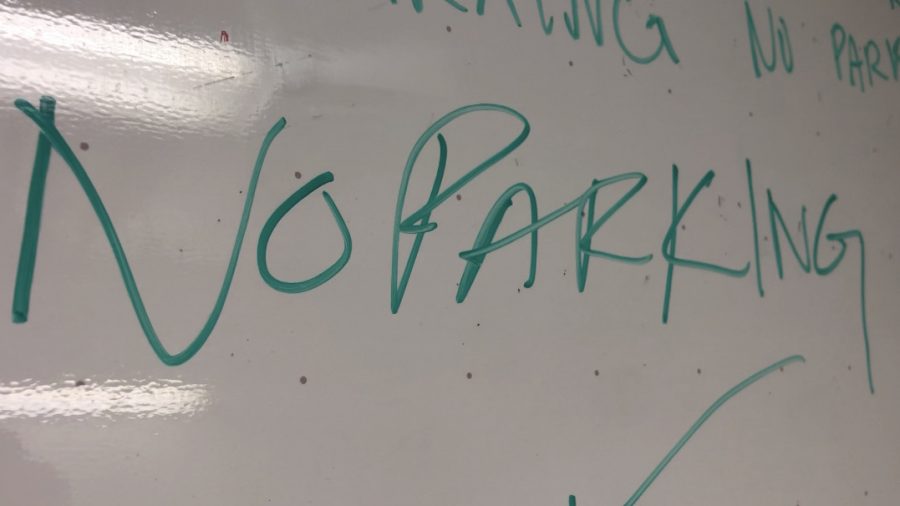
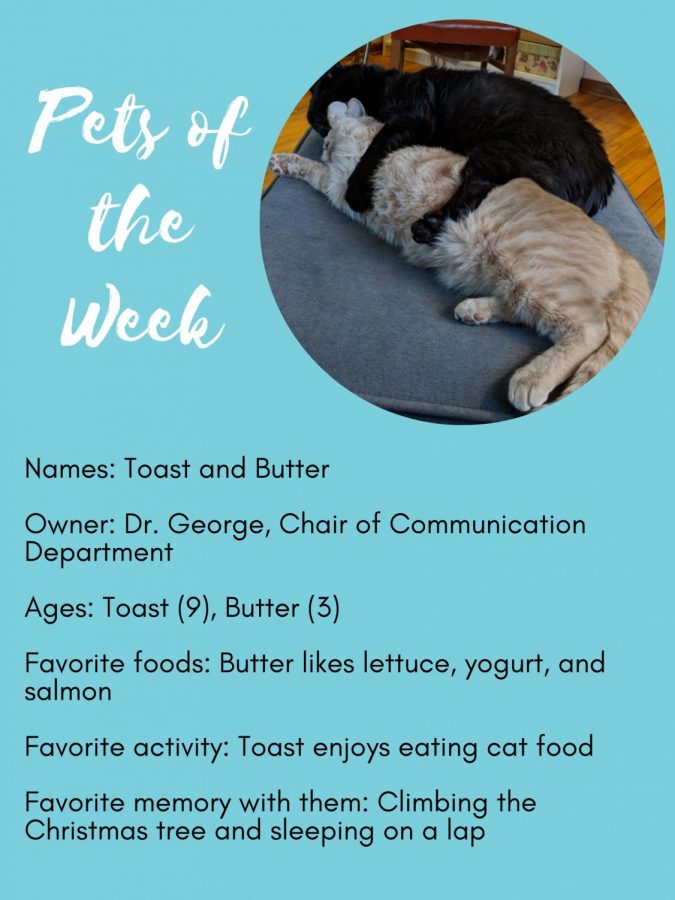
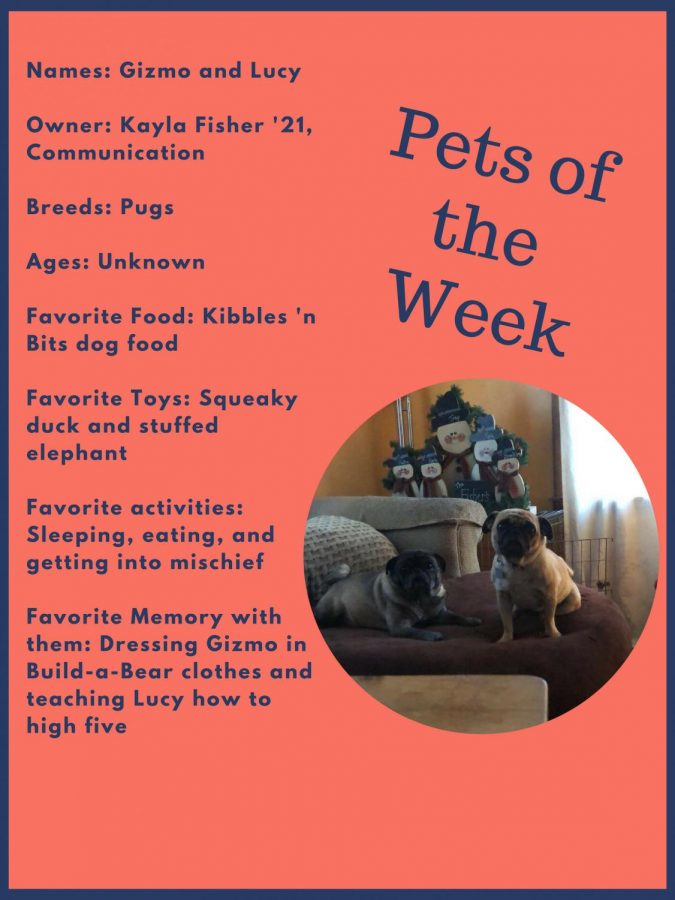

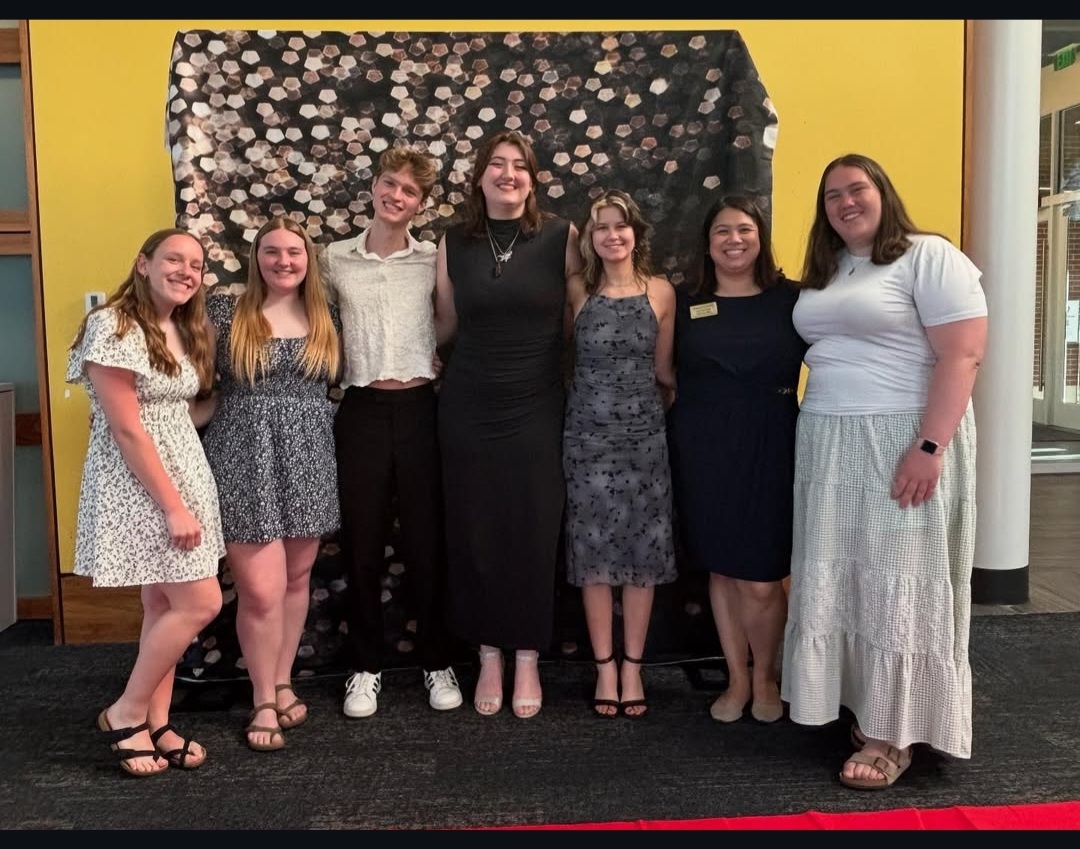
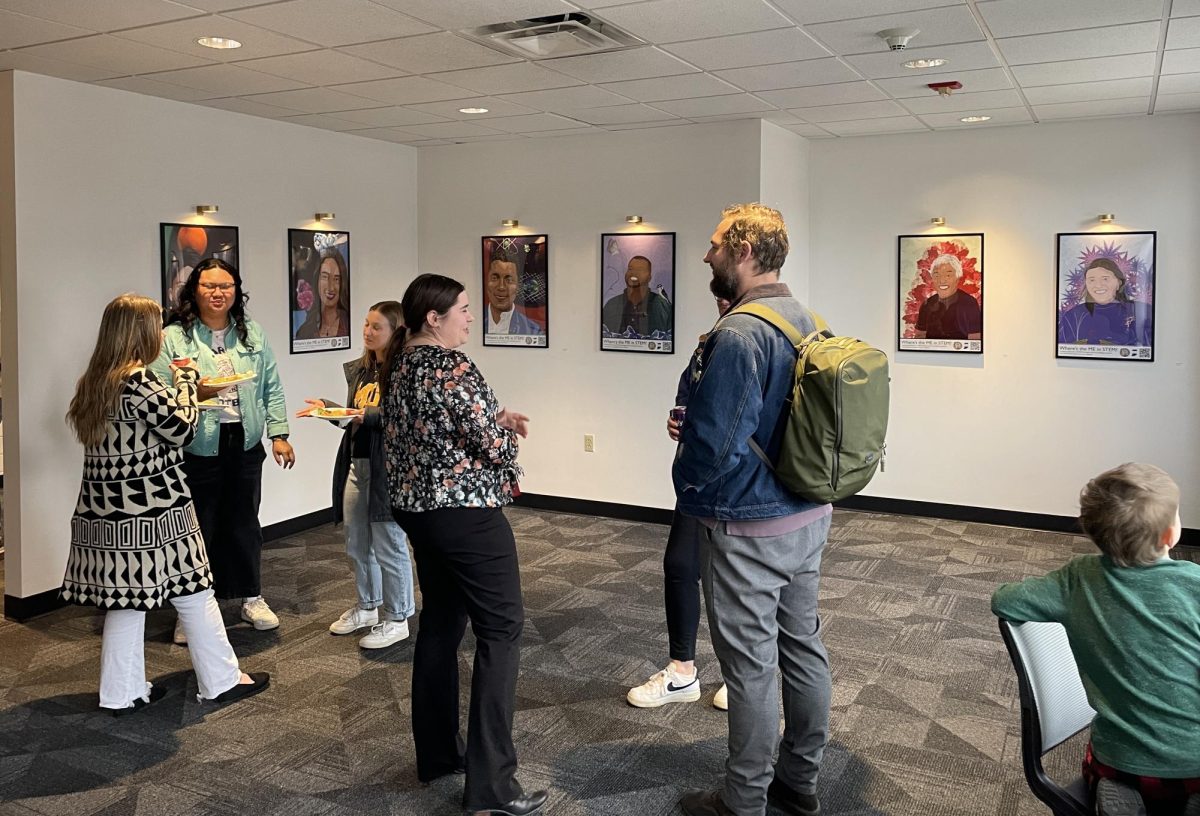



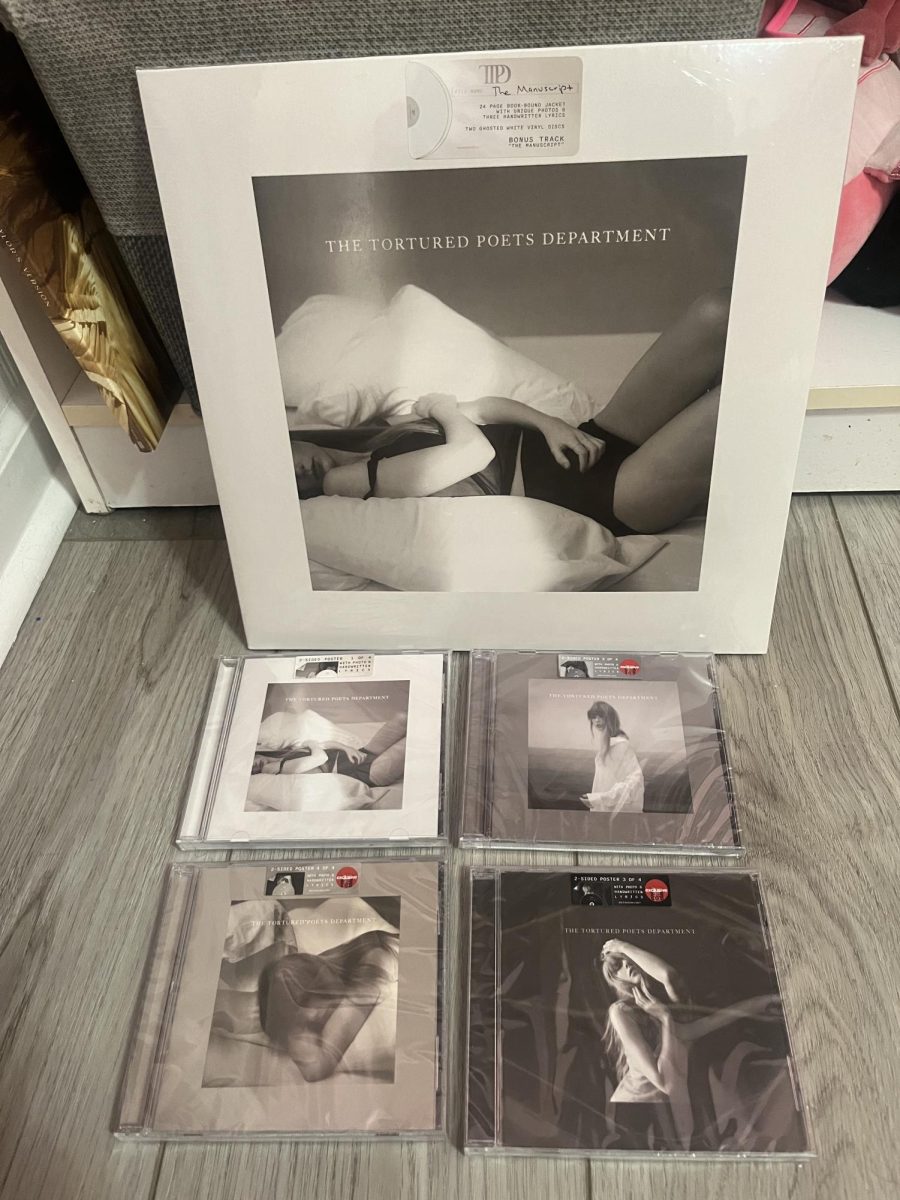
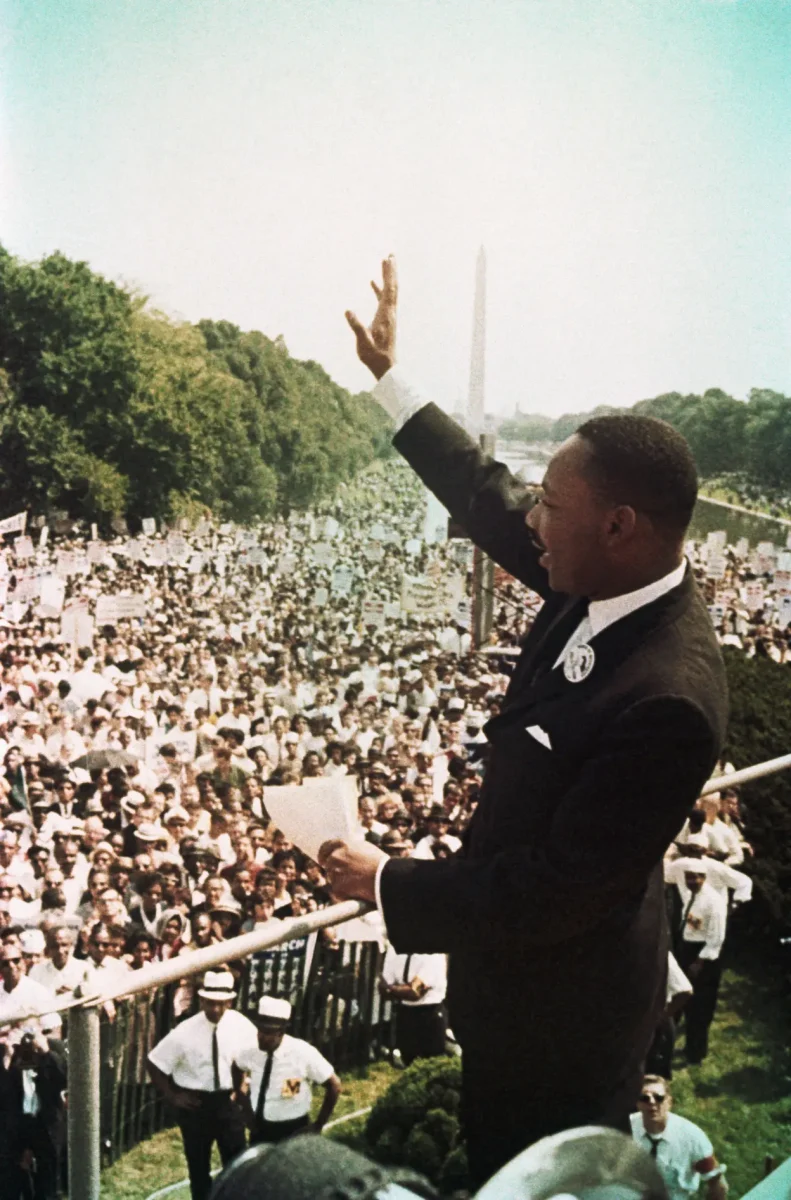
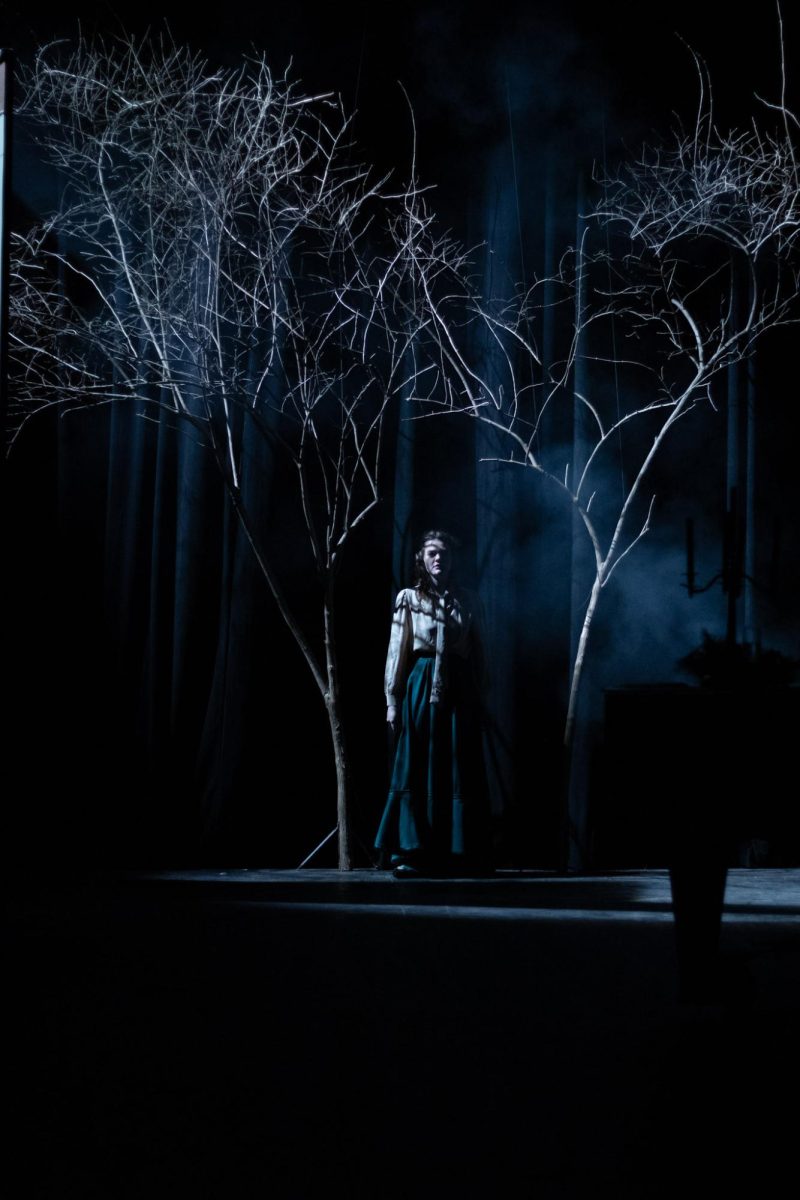

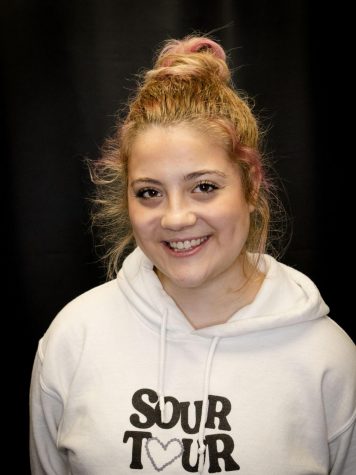
Betty White • Mar 22, 2025 at 9:39 am
I think there is a lot of symbolism in the later tracks that needed a bit more diving, and the imagery the songs painted. Great work.